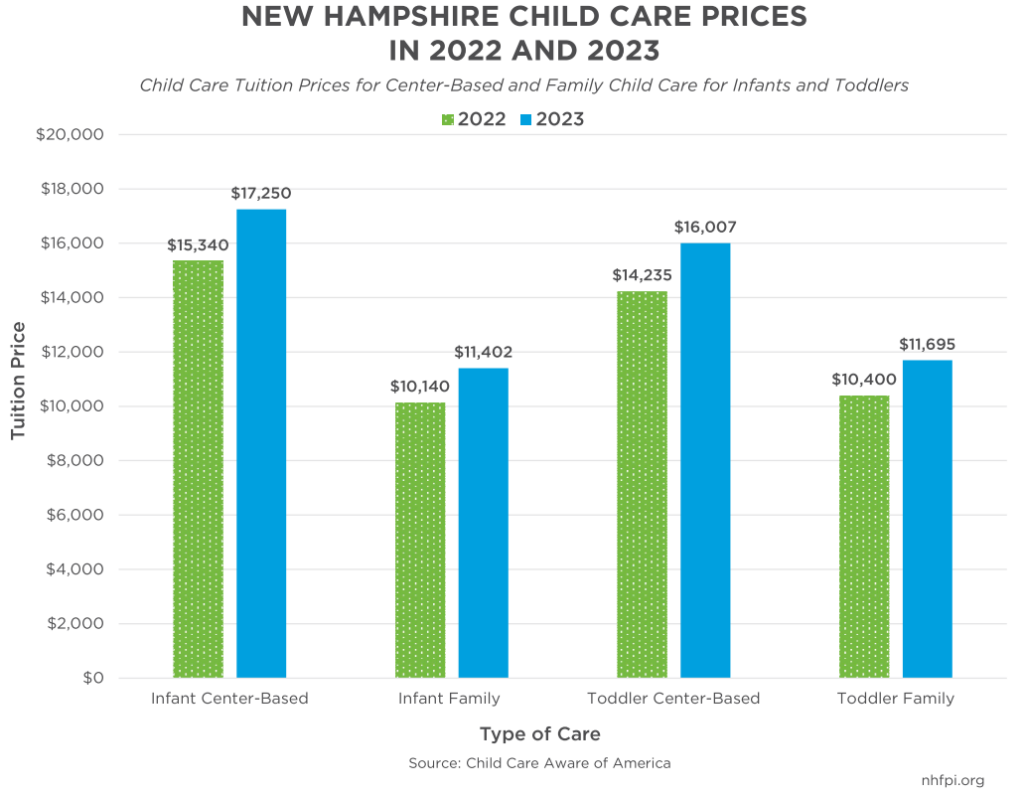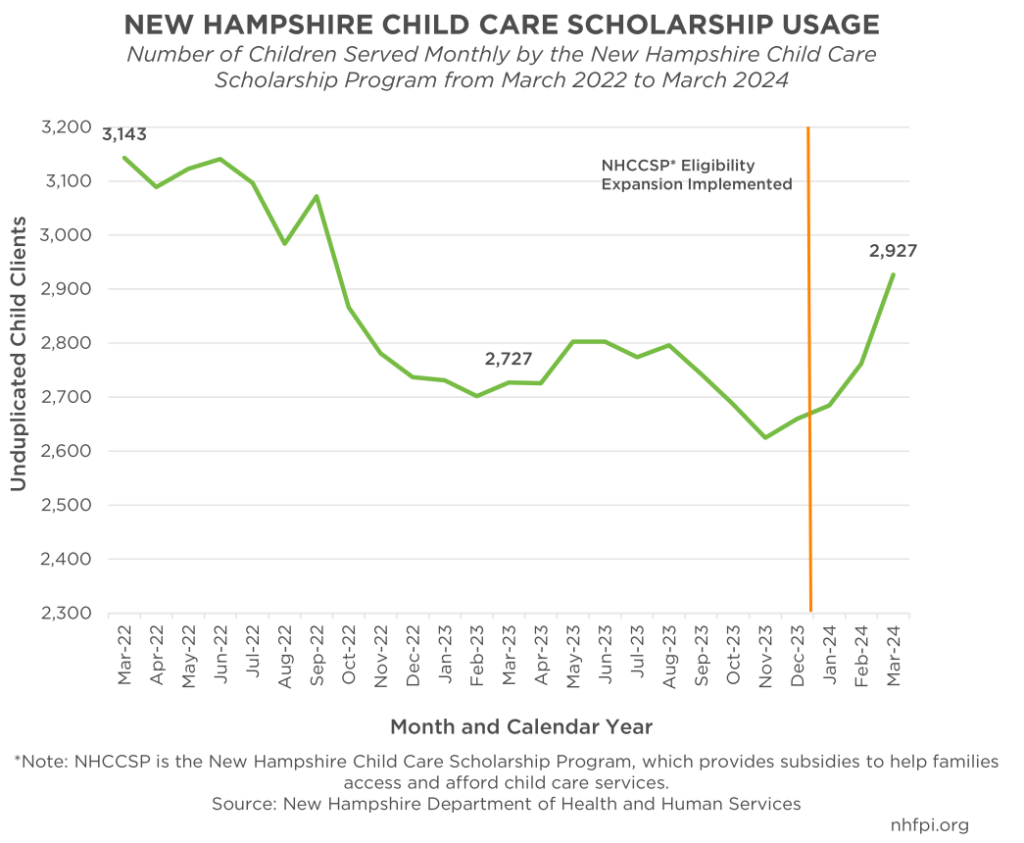Newly-released data revealed that the price of child care in New Hampshire continued to rise in 2023. The national organization Child Care Aware of America (CCAoA) estimated that New Hampshire families with an infant in center-based child care faced an average annual tuition price of $17,250. Preschool tuition in New Hampshire child care centers averaged $14,618, resulting in a combined annual average price of child care for an infant and preschooler of $31,868. Annual 2023 average prices for family-based child care providers were lower than for center-based care, at $11,402 for infants and $10,964 for preschoolers, with a combined tuition price of $22,366 for a family with an infant and preschooler.
These figures are based on CCAoA’s annual survey of New Hampshire’s Child Care Resource and Referral agencies and the New Hampshire Department of Health and Human Services, which is the entity responsible for administering New Hampshire’s Child Care Development Block Grant. The updated estimates reflect a 12.5 percent increase between 2022 and 2023 across all types of care.
Child Care Prices Outpace Inflation and Child Care Market Rate Survey
The 12.5 percent increase in child care tuition prices outpaced New England’s overall 2.9 percent inflation rate faced by consumers between 2022 and 2023. The 2023 prices are also 21 to 23 percent higher, depending on age group, than average center-based rates reported in New Hampshire’s most recent federally-required 2021 Child Care Market Rate Survey (MRS). The 2021 MRS reported that average child care tuition ranged from $14,248 ($274 per week) for infants to $11,856 ($228 per week) for preschoolers in center-based care.
The MRS is conducted every three years and is used to set provider reimbursement rates for the New Hampshire Child Care Scholarship Program (NHCCSP), which is the Granite State’s child care subsidy program. Reimbursement rates for providers were increased to the 75th percentile of MRS prices on July 1, 2023, which equates to $15,340 a year for infants and $13,000 annually for preschoolers in center-based care. The 2021 MRS report was based on responses from about 65 percent of New Hampshire’s licensed child care providers who returned the mailed survey packets, with follow-up phone calls utilized as needed for those with missing information. The 2024 MRS report is expected to be published later this calendar year.
Child Care Prices Exceed Housing, Food, and Health Care Costs
For many Granite State families with two children under five, $31,868 in annual child care expenditures will be their single highest annual expense, exceeding housing, food, and health care costs. For example, a family with two adults and two children living in Coos County, New Hampshire’s county with the lowest cost of living, would have needed to spend an estimated $11,400 on housing, $12,456 on food, and $13,068 on health care to achieve an adequate standard of living in 2023, according to the Economic Policy Institute’s Family Budget Calculator. The same family residing in Rockingham County, the state’s county with the highest cost of living, would have needed to spend $20,772 on housing, $13,068 on food, and $12,876 on health care during this timeframe.
Increased Utilization Rates of Child Care Scholarship Program
The recent eligibility expansion for the NHCCSP may play a vital role in helping to ensure New Hampshire families can afford child care prices, even with steep annual increases. Under expanded child care scholarship eligibility, a family of three earning $89,180 or less in annual income will spend no more than 7 percent of their household income on child care cost sharing, the benchmark at which the U.S. Department of Health and Human Services considers child care to be affordable.
Since implementation of expanded eligibility in January 2024, NHCCSP enrollment has increased 10 percent, rising from 2,660 children in December 2023 to 2,927 in March 2024. Future publicizing and increased outreach regarding the eligibility expansion will be key for helping to ensure families are aware they may qualify for NHCCSP and encourage enrollment. Increased usage of this program may help more parents afford child care and participate in the workforce, creating potential for enhanced health of New Hampshire’s present and future economy.
– Nicole Heller, Senior Policy Analyst



